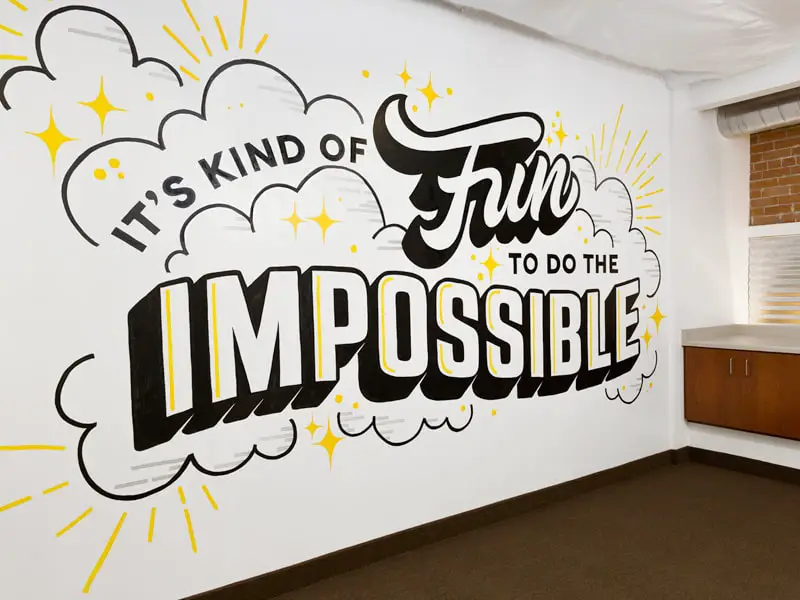Workplace stress is inevitable and excessive stress might cause a severe impact on employee’s physical and emotional health. Since it’s not possible to remove stress completely, effective stress managing requires taking actions in lowering its impact on everyday life.
15 strategies to manage workplace stress. One of the most important strategies is not forgetting to take deep breaths, then regular exercise, healthy nutrition, 8-hour sleep, positive affirmations, time management, regular breaks, being organized, prioritize, talking out the stress, resist the bad habits- stop being a perfectionist, reduce workplace distractions, avoid procrastination, take advantage of productivity peak times, avoid multitasking and communicate with your supervisors.
The way people deal with their workplace stress will determine their productivity levels and the overall success or failure in their careers.
There are numerous effective strategies and approaches for stress management. Burnout is very common when not taking precautions in identifying the stressors. By burning both ends of a candle, it is very easy to burn ourselves emotionally and physically.
1. Don’t forget to Breathe
Usually, when people are stressed, their breathing is shallow, which starves the brain and body of oxygen and adds up to the increased levels of stress. Shallow breathing affects the cardiopulmonary and immune systems.
Whenever you start feeling that you are stressed, try to concentrate on taking deep diaphragmatic breaths. Inhale through the nose 3-5 seconds and exhale in the same interval. Within a few deep breaths, you should start feeling less stressed, calmer and balanced. It will help you to clear your mind and body.
You should practice this exercise more often even if you are not stressed. The body needs enough oxygen amounts at all times.
Another exercise that includes breathing in its practice is practicing mindfulness. This doesn’t mean sitting in a lotus position for several hours, but finding a quiet place and making yourself to be present in the here and now, than thinking about past or future events.
Also, meditating for 10 minutes every day using techniques such as guided visualizations, deep breathing, yoga, repeating phrase consisted of few words etc. helps in relaxing the mind and body. You can even set a timer for 10 minutes so you can relax without being worried about the time.
2. Sleep
Make sure to get enough sleep of approximately 8 hours. Good night’s sleep helps in recharging the body and mind and preparing you to deal with all of the stressful situations during the day in the best way possible.
Poor sleep contributes to decreasing the ability to cope with even normal stress situations, is negatively affecting the mood and rational thinking, is decreasing the productivity and creativity for the day, etc. All of this helps in increasing the stress levels.
Even though chronic insomnia is linked with excessive stress, not having a proper sleep schedule is one of the contributing factors. (We have written a related article – Why We Sleep )
)
There are some techniques for having better sleep:
-
Have a sleep schedule – Every day, try to go to bed and get up at the same time. This way you will set your own internal clock to fall asleep a lot quicker, as well as wake up at the same time without using the alarm clock. For this to be successful, try to avoid sleeping more than usual on the weekends, because it can ruin your schedule.
-
Have an 8-hour sleep – People are most productive when having proper 8-hour sleep. This is the optimal amount of sleep that helps most of the adults to operate at peak performance.
-
1 hour before going to bed, turn off all of the screens – phones, laptops, TV, and more, that are engaging your brain and make it difficult to fall asleep. The light that is emitted from these devices is suppressing the production of melatonin in the body, which can disrupt sleep.
-
Take power naps of 20 minutes during the day. These naps as their name states are highly regenerative. But you should not overdo them, because most likely they will disrupt your sleep rhythm.
-
Before going to bed, try to focus on soothing activities, like listening to music, reading, etc.instead of doing stressful activities such as checking your work.

3. Exercise
Regular exercises of any type- gym, yoga, pilates, swimming, cycling, walking, dancing, kickboxing, etc. help in releasing endorphins in the body system. These endorphins help in releasing stress, sleeping better, feeling better, having better concentration, higher energy levels and at the same time exercising is keeping you fit and in better shape.
When stressed, muscles tend to become tense, and exercising helps in relaxing them and increasing the blood flow and oxygen throughout the body. Choose a sport that is enjoyable and will get you moving every day or several times a week
Exercising helps in getting your mind off stressful events. Trying to focus on your body movements at the moment, then stressing about certain situations, is a form of conscious meditation, which will help in calming your mind and body.
In your day’s schedule, make time for minimum 30-minute exercises. There is a study that found that exercise of any type is just as effective as antidepressants for eliminating depression, without poisoning the body with pills.
If you don’t have time for squeezing a 30-minute gym session or taking a yoga class, here are some tips on how to increase your physical activity during working hours:
-
– Walking can do wonders for your health. Try to have as many walking breaks as possible, starting with walking on your lunch break.
-
– If your company has a wellness program, encourage a walking challenge amongst your colleagues. Each week or month gives awards to the colleagues that have walked or have been active the most.
-
– Take meetings while walking through the office- if it has a designated walking track, so you don’t disturb your colleagues, or through some green area near your office.

4. Healthy nutrition prevents unhealthy stress-coping methods
Bodies that are well-nourished are a lot more prepared to cope with stressful events. The majority of people tend to eat unhealthy foods and drink alcohol as a way to manage stress.
Why does this happen? Our brain, when we are stressed is releasing the cortisol hormone. This hormone increases our cravings for sweet, fat-laden, and salty foods such as burgers, pizza, and more.
These foods bring temporary pleasure, but at the same time make us lethargic and unable to resolve all of the problems before us, which in turn will make us more stressed.
Drinks and foods that have high sugar levels in their composition might give you instant energy, but after a while will leave you edgier than before.
Start your day with a well-balanced breakfast, and keep your mind clear, focused and concentrated during the day with eating at least three healthy meals rich in complex carbohydrates.
If you are not sure what to consume and whatnot, here are some tips:
-
– Foods such as fruits and vegetables that are high in fiber;
-
– Complex carbs such as pasta or whole wheat bread;
-
– Foods that contain antioxidants which are mood-boosting, such as blueberries, dark chocolate, and kale;
-
– Foods that contain Omega-3 acids such as salmon, sardines, anchovies, then walnuts, seaweed, etc. These foods rich in omega-3 acids are also mood-boosters;
-
– Healthy snacks.
Tips on what to avoid:
-
– Minimize the use of foods high in sugar and refined carbs- french fries, baked goods, sugary snacks. Usually, when we are stressed, our cravings for something sweet and comfort foods are high. Actually, these foods are causing your energy levels to rise fast and crash even faster, which can make your stress even worse.
-
– Foods such as red meat and cheese are high in fat and are causing sluggishness and lethargy;
-
– Minimize the use of drinks that have caffeine, such as coffee, certain types of tea, soda, etc. Almost everyone can’t live without coffee, so try to lower your caffeine intake because these caffeinated drinks might affect your sleep and keep you awake at night;
-
– Smoking when stressed seem like a calming technique, but nicotine is a stimulant that will increase your anxiety levels;
-
– Alcohol might seem a good idea when you are stressed and make you feel good for a short period of time, but it is a natural depressant and after it wears off, can cause anxiety, will affect your mood negatively, and you might even forget what you needed to do the following day.

5. Affirmations are affecting our health positively
Every thought or emotion that we experience is creating a chemical release in our brains and bodies, which then affects our emotional and physical health and our overall well-being.
Setting a positive mindset and trying to focus on your accomplishments, achievements, and positive aspects of your life can boost your mood, your self-esteem, which will eventually boost your motivation for achieving your goals.
Negative thinking and focusing on the negative aspects of every situation will only deprive your motivation and energy. Instead, think positive about your work, give yourself positive statements, celebrate the small accomplishments, and avoid negative colleagues. All of these things will help you change the way you experience everyday stressful situations.

6. Manage your time
One of the most important strategies for managing workplace stress is proper time management. You need to be aware of your capacity for the day and take up as many tasks as you can complete. If you plan to do numerous tasks in a short period of time, you will end up stressed and frustrated.
-
Your schedule needs to be balanced. Try to create a balanced schedule by analyzing your current schedule, making time for your friends and family, time for other social activities, etc. If there is no balance between work and personal life
 , it’s very easy to burnout. You can use a calendar to plan all of your weekly activities.
, it’s very easy to burnout. You can use a calendar to plan all of your weekly activities. -
Get up 10-15 minutes earlier than usual. Having some spare time to prepare for work will help you in getting to your office without rushing and worrying that you will be late. Reaching the office a few minutes early will enable you to take a deep breath, prepare for the working day, and do your tasks with ease.
-
Avoid committing yourself to many tasks that can’t be finished in one day. Rescheduling tasks over and over again will only make you more stressed. Try to separate the tasks in tasks that are urgent and need to be done within the day and tasks that can be scheduled or eliminated. You can even use time management tools to help you with this task separation. For example, you can use the Eisenhower Box.
-
Learn to say no. Don’t take too many tasks on your plate. It will stress you out and you will feel the pressure that you need to be available 24/7 to your managers or colleagues. It is important to learn to say no to things that might stress you out. Also, it is very important to establish periods of the day that you won’t check your email or take work calls.
We have written a related article – 100 Ways to Be Productive at Work

7. Take several breaks
Don’t forget to include breaks into your schedule. Going through 8-10 hour workday without breaks, by the end of the day will leave you exhausted and will affect your health eventually. It is very hard to walk away from a big task or a project but having short breaks to get away from your desk throughout the day will help you in recharging and be more productive.
-
– It is recommended after 90-minutes or 2 hours of intense concentration to take a break of at least 10 minutes to relieve the built-in stress and recover your energy.
-
– During the lunch break, try to disconnect from your work responsibilities. Having a light conversation over lunch with your friends and family can boost your mood and lower your stress.
-
– Most of us are sitting all day at work, and the sedentary life starts to take a toll on our health at some point in our lives. Taking a walk, having a relaxation exercise in the break room, and more can help in blowing some steam, getting into better shape and it’s mood-boosting.

8. Organize yourself and prioritize
Without proper planning, our work will consume us. Planning ahead by organizing and prioritizing our tasks, helps us in managing workplace stress. After all, feeling overwhelmed by work is one of the biggest stressors.
Try to avoid clutter on your desk. Keep your workplace well-organized and neat. All of the important documents and files should be easily accessible, separated into different project folders, so you don’t panic and spend valuable time searching the documents. (We have written a related article – Manage Your Brain at Work )
)
With the ever-changing priorities and deadlines sometimes it can be very difficult to define which tasks need to be done first. Focus on those tasks that are having an impact on the company and are in line with your personal and company’s strategic goals. This way you will be more efficient and less stressed.
There are a few tips that will help you in managing your workplace stress by organizing and prioritizing:
by organizing and prioritizing:
-
Set your goals. When you have a clear vision of your goals it will be a lot easier to see which of your daily tasks are aligned with your goals. In addition, by using your goals you can evaluate the task importance. If the task is bringing you closer to your set goals that its completion is a priority.
-
Start with the most important tasks first, especially if they are not the most pleasant thing to do. This way you can go through your day a lot easier.
-
Set realistic deadlines. Even though deadlines are also major stressors, when a certain task doesn’t have a deadline it will be pushed all the time for ones that have deadlines. If you set realistic deadlines on your tasks, you will get them done in a timely manner.
-
Large projects tend to be overwhelming, so try to break the project into smaller tasks, and complete them one by one.
-
Delegate tasks. Thinking that we must do everything by ourselves is another major stressor. We don’t need to control every aspect of the project. Try to delegate responsibility for certain tasks to your team members instead of feeling overburdened.
-
Make compromise, be flexible, and adjust your expectations.
-
Create a To-Do list. This is an effective way of keeping track of your daily tasks, so nothing slips on you. You can go old school by using notepad, or one of the task management platforms. When you complete certain tasks by marking it as complete, you won’t have to worry that you still have a load of work on your work. As the saying goes ”Work smarter and not harder”.

9. Manage your workplace stress by reaching out
Creating positive workplace relationships is very important. Your colleagues usually are up to speed with everything that is going on at work. Even though they can’t always help you with your problems, by talking your stress out, they can listen and help you take your mind off it, and reduce the anxiety that follows. (We have written a related article – Reduce Stress and Anxiety at Work )
)
Also, try to offer support when a colleague is confiding with you. Good support system at the office helps in buffering the stress.
If you don’t have someone at work to confide, spend some time with your family and friends. Friendships are a very important aspect of life-work balance and ultimately your health. While effects from stress can be pretty negative, friends can help in taking your mind off the negative thoughts and stressors, so you can continue with your daily tasks without worrying.
If you are not a sociable person and are isolated most of the time, your vulnerability to stress is greater. After all, it’s never too late to form new relationships. Instead of looking at your smartphone at lunch, put it down and engage with your coworkers. By taking an interest in different areas, you can meet people that share your interests. (We have written a related article – The Healthy Workplace)
By admitting that you’re stressed, you are on your first step to figuring out how to overcome it. You are not the only one that has experienced stressful situations at work, ask your colleagues, your family, if they have experienced something similar and what they did to manage their stress.

10. Break the cycle of bad habits
Negative thoughts drain our energy and are slowing down our work progress. The energy put in these thoughts can be directed into finishing daily tasks. A positive outlook on the events around you can help you cope with work stressors.
Resist being perfectionist – By setting unrealistic goals, unnecessary stress is added to your day. Also, unrealistic goals are connected with a failure, which will make you even more stressed and increase your self-doubt. Try to do your best, be a high achiever and learn from your mistakes. Your results will be a lot better, and you will feel less stress.
Resist controlling what is out of your reach – Instead of stressing about things that are beyond your control, especially coworkers’ behaviors, focus on things that you can control – your attitude, efforts, etc.
Be positive – Finding a way to lighten the office mood, by sharing a funny Youtube video, funny story, or a joke. Laughing is actually a great stress reliever. The endorphins that are released by laughing can neutralize the effects of stress.
Express gratitude – By expressing your gratitude either to yourself or your coworkers, you’ll start looking positively on your work and life. Negative thoughts will only drain your motivation to work. (I use this journal to help me express gratitude everyday).
to help me express gratitude everyday).
Clean your desk – Avoid desk clutter. Clean your desk and sort everything in folders. It will be easier to work knowing where everything is.

11. Spend some time on you
With all of the work-home responsibilities, we often forget to take care of ourselves. Each day do something for you, something that you will enjoy, something that will relax you, especially on the weekends. Make time for taking a walk, reading a book, watching an episode or two from your favorite TV show.
Weekends are the days that you need to energize yourself, spend some time with your loved ones without having to worry about work. Create boundaries and don’t let your manager give you work over the weekends. Learn to say no.
From time to time, ask for time off. Going on a vacation, or anywhere else than your workplace will help you gain a new perspective, recharge your batteries and save you from burnout.

12. Reduce work distractions
Work distractions are numerous, from phone notifications, emails, phone calls from friends, to office gossip, etc. All of these distractions can interrupt your thought flow and can make you lose your focus. We all know that once we are deconcentrated, we need considerable time to come back on track, which is increasing the time needed for completing the tasks for the day.
You will wonder at the end of the day, where your time has gone and why you didn’t complete the scheduled tasks.
To reduce the work distractions, try to turn off your phone and put your headphones so you won’t listen to the office gossip. Also, you should inform your colleagues that constant conversation every time they pass your workplace is interrupting you and make you less productive. Light conversations can take place at a lunch break or coffee break.

13. Take advantage of your peak times of productivity and forget multitasking
Every person has a certain part of the day that feels most energetic, is most productive and can deliver great results. Take advantage of your peak hours of productivity to complete as many tasks as possible. Don’t use this time for chatting and other unimportant things
After lunch, when all of your energy goes to your stomach, use this time to browse the internet or check on your social media accounts. By using your time properly, you will maximize your efficiency and have some time for yourself.
There was a time when multitasking was considered as an efficient way to maximize the use of time. After a while, people started to realize that multitasking not only makes them even more stressed, but also the accuracy of the tasks were in question. After all, you can’t talk on the phone and make important calculations at the same time. You will either focus on one and do it properly or do two separate things and do theм superficially.

14. Avoid procrastination
Almost everyone has a number of tasks that are trying to delay or postpone as much as possible. But actually, these types of tasks are remaining in the back of our mind as a constant reminder and are causing additional stress.
Try to do these irritating tasks one at a time each day, so you’ll have them done in a few weeks.

15. Communicate with your manager
Usually, when we are feeling uncertain, or without control over some situations, our stress levels increase. In order to regain control over your career and job, here are a few tips:
Communicate with your employer/manager about the workplace stressors – Happy and healthy employees are working better, so employers need to be interested in lowering the workplace stressors whenever possible. Let your manager know about certain situations or things that are stressful to you, instead of dropping a list of complaints.
Try to be as clear as possible, because misunderstandings can ruin your work relationships, not only with your coworkers but with your employer as well.
Clarify your job requirements – Most of the time, unclear job requirements are causing additional stress. Not knowing what is expected of you, then not being sure if what you are doing is right, and on top of that if the requirements are changing constantly without the needed details are one of the major reasons for job burnout.
Try to clarify your job requirements with your manager, ask for an updated list of your job responsibilities, duties, expectations, etc. It may turn out that half of the pile on your desk doesn’t belong to you.
Request new responsibilities and duties – If for a longer period of time, you have been doing the same tasks over and over again and you want to be challenged, ask for new duties.
Ask for a transfer in a different department – If you feel that you are being suffocated in your workplace environment, and if your place is big enough, you can ask to be transferred to a different department.

Additional tips
-
Listen to music whenever you can – Listening to music is considered a pretty effective way of relieving stress. Whether you listen to your favorite playlist at work, or on your way home, it can help you feel less stressed, as well as prepared to go back to the real world more relaxed. (My go-to is www.brain.fm
 )
) -
Look for satisfaction in your work – There are very few people working their dream job. Working mundane jobs, feeling bored, can cause serious stress, which will affect your mental and physical health. The best option is to find a new job that you will love.
But if that is not possible, at least for the foreseeable future, try to find joy and purpose in the job you’re working. Focus on all aspects of your job that you really enjoy, even if that’s the lunch chatting with your colleagues.
When you start to change your point of view towards your current job, you will start feeling like you have control and purpose once again.
What can be considered a symptom of stress?
Although everyone experiences stress in a different way, some of the common symptoms are:
-
– Stomach pain / Stomach problems (going to the toilet more than it should);
-
– Sleep difficulties, insomnia;
-
– Panic attacks, depression or anxiety;
-
– Feeling overwhelmed;
-
– Weight loss / Weight gain;
-
– Chronic headaches;
-
– Not being able to concentrate on work duties;
-
– Nausea and fatigue;
-
– Muscle tension;
-
– Social isolation, and more.
We have written a related article – 50 Workplace Stress Statistics )
)
Stress vs. burnout
Since we live in a fast-paced society, work stress is inevitable. But burnout can be prevented. Burnout is emotional and physical exhaustion due to an accumulation of excessive stress over some period of time. (We have written a related article – 25 Top Stress Relief Products )
)
Join Open Sourced Workplace





